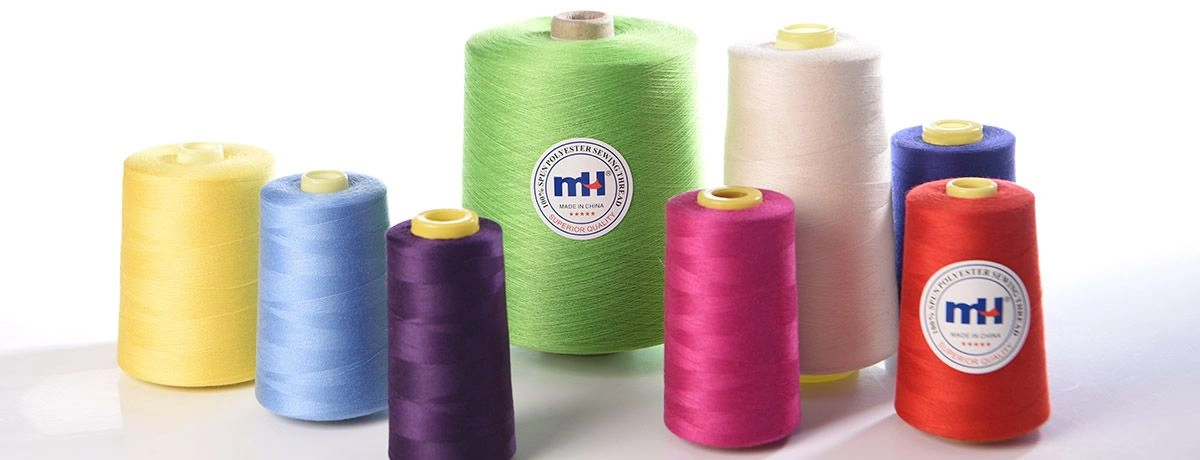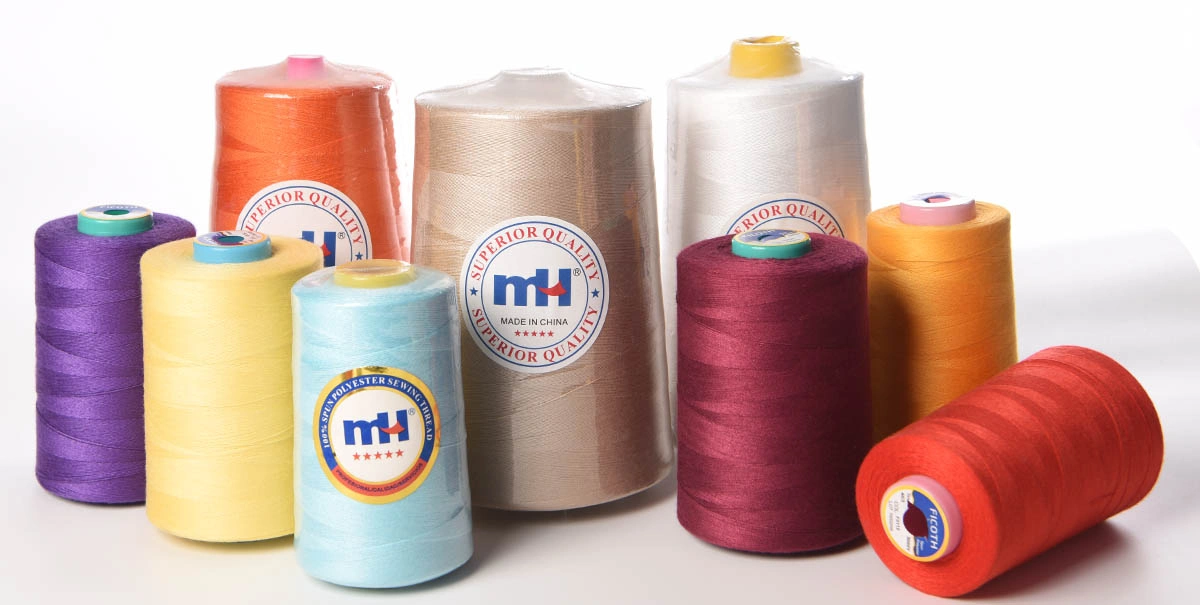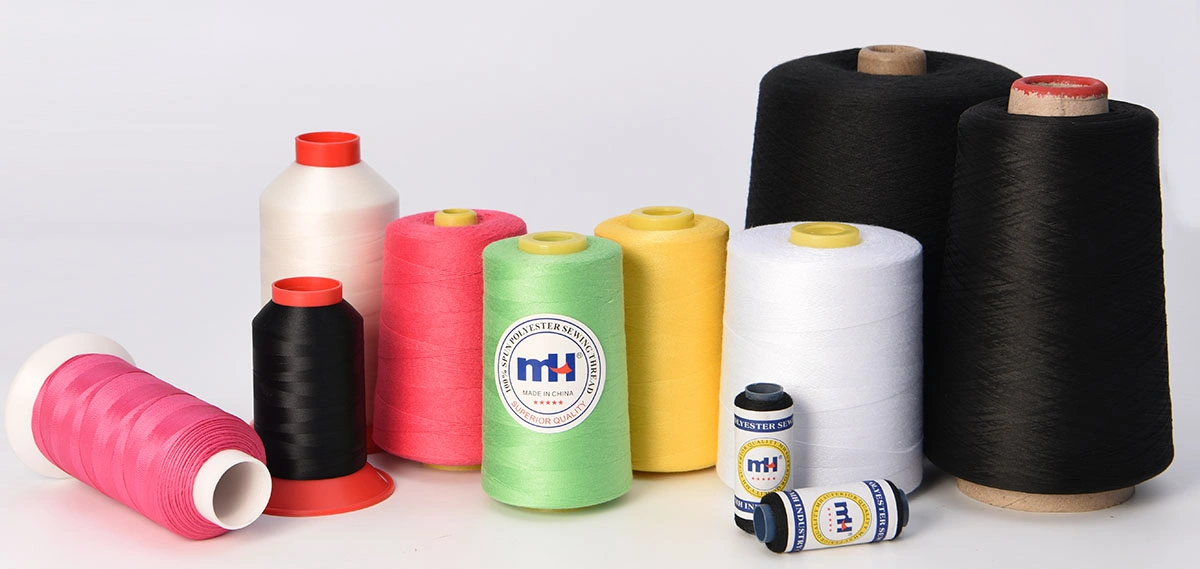Top Sewing Threads: The Best Choices for Your Projects

Need help selecting sewing threads? This article explains the types and how to choose the right one for your project.
Key Takeaways
-
Choosing the right sewing thread is essential for quality results and can prevent issues like jamming and uneven stitches.
-
There are various types of threads, including cotton and polyester, each suited for different fabrics and projects based on their unique properties.
-
Maintaining a versatile thread collection and properly organizing your sewing space can enhance your creativity and efficiency in sewing projects.
Understanding Sewing Threads

Choosing the right sewing thread is foundational for any successful sewing project. Beyond just matching colors, the fiber content and weight of the thread significantly impact your work. High-quality threads often receive positive customer feedback and help prevent common issues like jamming and uneven stitching, providing a smoother sewing experience.
Variety packs of sewing threads offer good value for money, with benefits including:
-
Providing more thread than individual spools
-
Being cost-effective for avid sewists, making the price attractive
-
Offering up to 60 color options
-
Allowing for endless creative expression in your projects.
Specialty threads, like metallic and elastic, serve specific applications, adding creativity and precision to your work. Whether you’re crafting a quilt, garment, or another project, selecting the right thread and all purpose thread is key to achieving the best results.
Types of Sewing Thread
Sewing threads come in various types, each suited for different purposes. The main categories include cotton threads, polyester threads, and specialty threads. Each type has unique properties that affect its strength, appearance, and suitability for various fabrics and sewing techniques.

Cotton Thread
Cotton thread is favored for:
-
Its durability and ability to withstand machine washing and daily wear
-
Reliable stitching that suits both machine and hand sewing
-
Being recommended for microwave mats due to its heat resistance
A standout feature of cotton thread is its wide range of colors, allowing versatile use in sewing projects. Whether creating colorful quilts or intricate embroidery, cotton thread provides the needed flexibility. Often, cotton threads include a polyester blend for added elasticity and strength.
Overall, cotton thread is a dependable choice for many sewing projects. Its natural fibers appeal to those who prefer organic materials, and its performance in both machine and hand stitching ensures a high-quality finish.
Polyester Thread
Polyester thread stands out for its durability and UV resistance, making it ideal for outdoor fabrics. Corespun polyester threads, featuring a filament polyester core wrapped in spun polyester, provide added strength and are perfect for heavy-duty sewing.
Filament polyester threads are smooth and lint-free, requiring less maintenance for your sewing machine. Trilobal polyester threads, with their triangular fiber shape, offer a high sheen and sparkle, resembling silk or rayon, making them perfect for adding elegance to your embroidery projects.
Bonded polyester threads are commonly used in upholstery and outdoor applications due to their added strength and heat resistance. Soft spun polyester threads resemble cotton in appearance but are more elastic and economical to produce.
Overall, polyester threads provide versatility and durability, making them widely a staple in any sewing room.
Specialty Threads
Specialty threads cater to specific effects and applications, enabling creativity and precision in sewing projects. Metallic thread, for instance, adds a shiny finish, perfect for decorative stitching in holiday crafts and formal wear.
Elastic thread is mainly used in gathering and shirring, providing flexibility for stretchy garments. Clear thread is commonly used for invisible stitching, making it ideal for hems and seams where no visible thread is desired.
These specialty threads enhance your sewing projects by adding unique textures and finishes that you can sew.
Choosing the Right Sewing Machine Thread
Selecting the right sewing machine thread is crucial for high-quality seams and smooth machine operation. The thread’s compatibility with fabric types significantly impacts the durability and aesthetics of your projects. Quality threads minimize issues like jamming and uneven stitching, contributing to a better sewing experience.
For choosing threads based on fabric type:
-
For lightweight fabrics, choose finer threads.
-
For heavier fabrics, use thicker, more durable threads.
-
For stretchy materials, use threads designed to handle their elasticity.
Additionally, test threads on fabric scraps before use to ensure they run smoothly through the sewing machine and suit the intended material project. If you encounter any issues with the bobbin, take a break to troubleshoot the process.
High-quality brands like Gutermann and Mettler are recommended for their durability and low lint production, significantly reducing machine issues and enhancing the sewing experience. Choose thread colors that closely match the fabric for a seamless finish in your projects.
Reading a Thread Spool
Reading a thread spool may seem straightforward, but understanding its information is crucial for achieving quality results. The weight of the thread, usually expressed in numbers like 50 wt or 60 wt, reflects its thickness and is essential for sewing applications. However, manufacturers may vary in labeling and measuring thread weight, leading to potential discrepancies.
Color numbers on spools help identify and match threads accurately for specific projects. Manufacturer details can provide insights into the quality and properties of the thread. Understanding these details ensures you select the right thread, enhancing the final outcome of your projects.
Selecting the Best Sewing Needle
Choosing the right sewing needle is as important as selecting the right thread. Universal needles are versatile and handle various fabric types, making them a standard choice for many projects. However, specific projects and fabrics may require specialized needles for optimal results.
For example:
-
Ball point needles feature a rounded tip that gently separates fabric fibers, ideal for knits fabrics.
-
Stretch needles help prevent skipped stitches when sewing elastic materials, allowing the fabric to stick properly.
-
Sharps needles are designed for densely woven fabrics.
Jeans needles have a strong point and shank to penetrate thick fabrics like denim, while leather needles, with chisel point tips, are tailored for sewing genuine leather and suede. The right needle ensures your projects are completed with precision and durability.
Quilting Threads
Using 100% cotton thread is crucial for quilting as it provides the strength and durability needed to maintain the integrity of quilted items. High-quality cotton threads produce less lint, making them a better choice for quilting machines and reducing maintenance needs.
Quality cotton threads help avoid common issues like fraying and breaking, which can undermine the final appearance and durability of quilting work. Specialty quilting threads, such as heavy-duty cotton, withstand the rigors of quilting, ensuring stitches remain secure through multiple fabric layers.
Opting for thicker cotton threads in quilting enhances flexibility and elasticity, vital for handling the complexities of layered sewing projects. The right thread choice can influence the longevity of the finished product by reducing the risk of fraying, fading, and breakage.
The Role of Thread Weight
Thread weight indicates the thread’s thickness, influencing the final look of sewing projects. Different thread weights are suited for various purposes:
-
Heavier threads: Suitable for durable projects.
-
Lightweight threads (50-60 weight): Ideal for fine details and delicate fabrics.
-
Medium weight threads (30-40 weight): Suitable for general sewing.
Heavyweight threads (12-20 weight) are designed for thick fabrics and heavy-duty applications, adding strength and visibility. Thread weight is measured in various systems, such as Tex and Denier, which indicate thickness differently. Choosing the right thread weight enhances stitch appearance, making it crucial for decorative stitching and durability.
High-Quality Sewing Thread Brands
Investing in good quality sewing threads affects the overall durability and appearance of your projects. Gutermann thread is favored for its durability and low lint production, making it a reliable option for various sewing tasks.
Coats & Clark, readily available in many craft stores, offers a balance of affordability and a broad color selection. Mettler’s thread is known for its long staple fibers, enhancing strength and reducing breakage. These brands provide quality threads ensuring your projects are completed with precision and durability.
Maintaining a Versatile Thread Collection
A versatile collection of sewing threads allows you to tackle various projects with ease and creativity. Aurifil is noted for its collaborations resulting in beautiful colors, though it tends to be more delicate than other brands.
When choosing threads, balance visual appeal with durability, as some high-quality threads may be more delicate. Maintaining a diverse range of threads enhances your ability to select the right one for each project, ensuring quality results.
Enhancing Your Sewing Space
Proper organization of threads can be achieved by:
-
Using boxes or racks to prevent tangling and allow for easier access during projects.
-
Categorizing threads by color, weight, and fiber type to enhance efficiency. This categorization is helpful in quick selection for specific tasks.
Store thread in a cool, dry environment away from direct sunlight to prolong lifespan and maintain quality. A well-organized sewing space can significantly improve your workflow and the quality of your projects and make it easier to purchase supplies.
Summary
In summary, understanding the different types of sewing threads and their specific applications can greatly enhance your sewing projects. From cotton and polyester to specialty threads, each type offers unique benefits that cater to various sewing needs.
Investing in high-quality threads, maintaining a versatile collection, and organizing your sewing space are key steps to achieving professional results. Armed with this knowledge, you’re ready to take your sewing projects to the next level. Happy sewing!
Frequently Asked Questions
What is the best type of thread for quilting?
For quilting, 100% cotton thread is your best bet because it's strong and durable. You’ll appreciate how well it holds up over time in your projects!
How do I choose the right thread for my sewing machine?
Choosing the right thread is all about matching it to your fabric type and weight, so don't forget to test it on a scrap piece first to make sure it works well!
What are the benefits of using polyester thread?
Using polyester thread is a smart choice because it’s highly durable and UV resistant, making it perfect for a variety of fabrics. You’ll appreciate its versatility in all your sewing projects!
Why is thread weight important?
Thread weight is crucial because it determines the thickness and visual impact of your stitches. Choosing the right weight ensures your project not only looks great but also holds up for its intended use.
How should I store my sewing threads?
To keep your sewing threads in top shape, store them in a cool, dry place away from direct sunlight. This will help ensure they last longer and maintain their quality.
What about MH sewing threads?
As a professional sewing thread manufacturer, MH has earned the trust of customers with its high-quality products, wide range of applications, and exceptional service. Whether for apparel, home textiles, or industrial use, MH sewing thread is celebrated for its durability, vibrant color options, and eco-friendly features.


